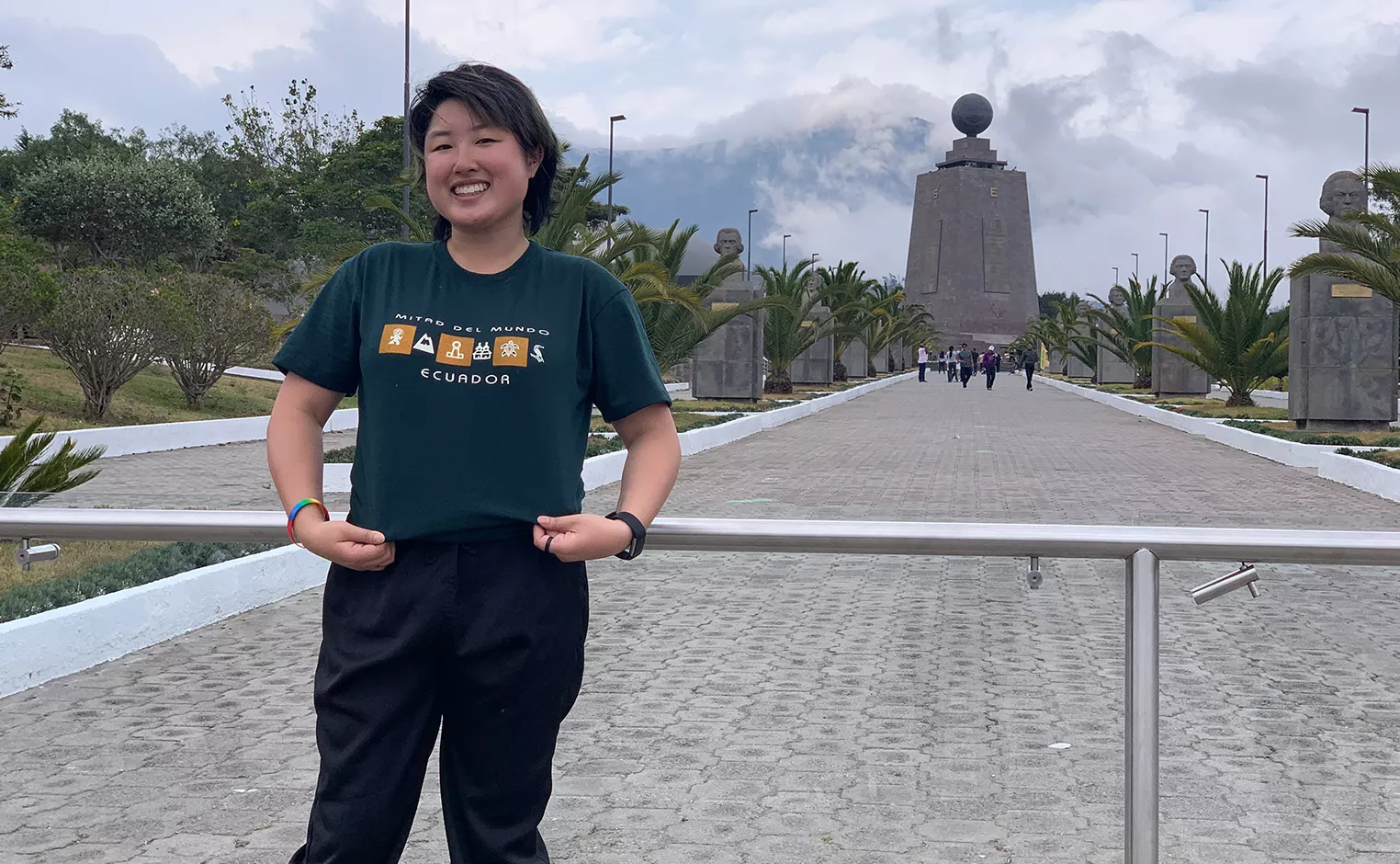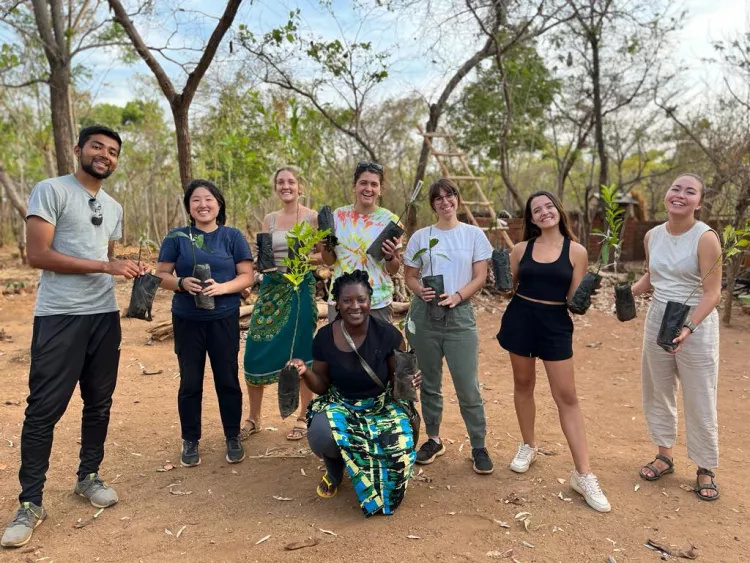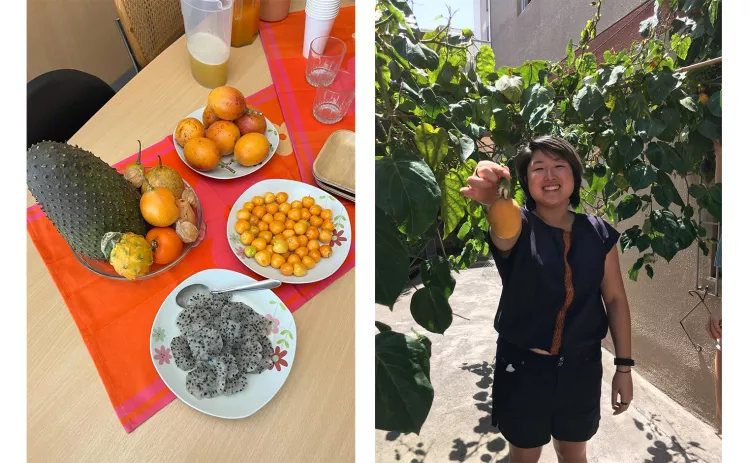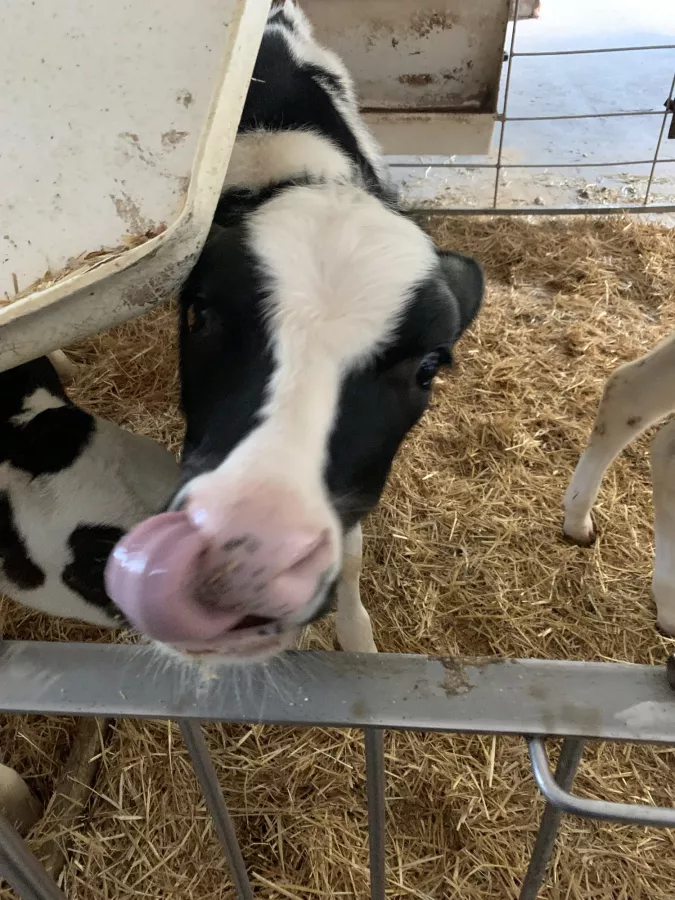Touchdown in 3 Continents: Experiences and Connections
By Johanna Lee '23

Photo credit: Johanna Lee '23 (Ecuador, SIT, fall 2022)
Hi! I’m Johanna Lee ‘23, and I’m a pre-med student majoring in biology and environmental studies. During the fall of 2022, I participated in SIT IHP: Food Systems Agriculture, Sustainability & Justice which went to Ecuador, Malawi, and Spain. This was my first time abroad (that I remember), so why go to one country when you could go to three? We spent about a month in each country, and even within a country, we were always on the move. In this program, we had site visits or excursions almost every week. Majority of our visits were to small, local farmers that used organic or other alternative ways of farming. Some of the most memorable experiences were making chocolate at República del Cacao, getting to live in a yurt and plant trees at the Permaculture Paradise, and learning to cook Spanish seafood and tortilla.

Grafting fruit trees in our environmental sciences class Photo credit: Johanna Lee '23 (Malawi, SIT, fall 2022)
One of my favorite things about this program was being able to see the connections between the different countries. In Ecuador, I saw and tasted many kinds of fruit such as uvilla (golden berries), guanabana (soursop), granadilla, and more. Once I left, I was sad that I would probably never see them again. Imagine my surprise when I saw uvilla at a permaculture farm and granadilla at an open air market in Malawi! As soon as I saw them, I excitedly texted my Ecuadorian host family.

Ecuadorian fruit and juice tasting (guanabana, pitahaya, tomate de árbol, uvilla, granadilla, naranjilla) and picking granadilla from my host family’s garden on my birthday. Photo credit: Johanna Lee '23 (Ecuador, SIT, fall 2022)
Throughout the different countries, we saw many similarities between techniques and personal values of the farmers. An interesting country comparison ah-ha moment happened in Spain during our visit to La Fageda, a yogurt company. We were looking in awe at a cow stepping into an automatic milking system as classical music played in the background. We realized that this was the same machine that Carlos, a small dairy farmer in Ecuador, hoped to have one day for his cows.

A calf at La Fageda Photo credit: Johanna Lee '23 (Spain, SIT, fall 2022)
Many of these connections were made organically, but our program took advantage of the fact that we were going to three countries. After site visits, we would have many debriefing sessions to discuss what we saw and ask more questions. Academically, for our political science class, we were asked to create an interview-based research project that would span the entire semester and cover all three countries.
My project focused on how people thought about sustainability, the challenges they faced when trying to be sustainable, and what kinds of sustainability (environmental, economic, and social) they focused on. I really enjoyed this project. It taught me how to ask better questions, be conscious about how words would or wouldn’t be able to be translated from English, organize information better, and more. Most importantly, this project would synthesize what we learned in class, from our home institution, and our interviews with various farmers.
At Swarthmore, environmental studies classes often emphasize discussions and critiques about problems and solutions. However, there’s also only so much you can learn in the classroom. Being abroad, I was able to see how farmers acknowledged climate change and waste by using more resilient and regenerative farming practices. There was no one-size-fits-all strategy or a perfect solution against all challenges the farmers faced. Each farmer had to adapt to their own country, environment, and the resources they had.
Overall, this semester taught me that every experience could be educational. I learned a lot by having conversations in a rural village, milking cows at 4 in the morning, looking out the window in van rides. I highly encourage people to study abroad during their time at Swat or even after graduation. Personally, I’ll be continuing my abroad experiences with SIT’s Master of Arts in Global Health program that will go to Switzerland, Kenya, and India!



